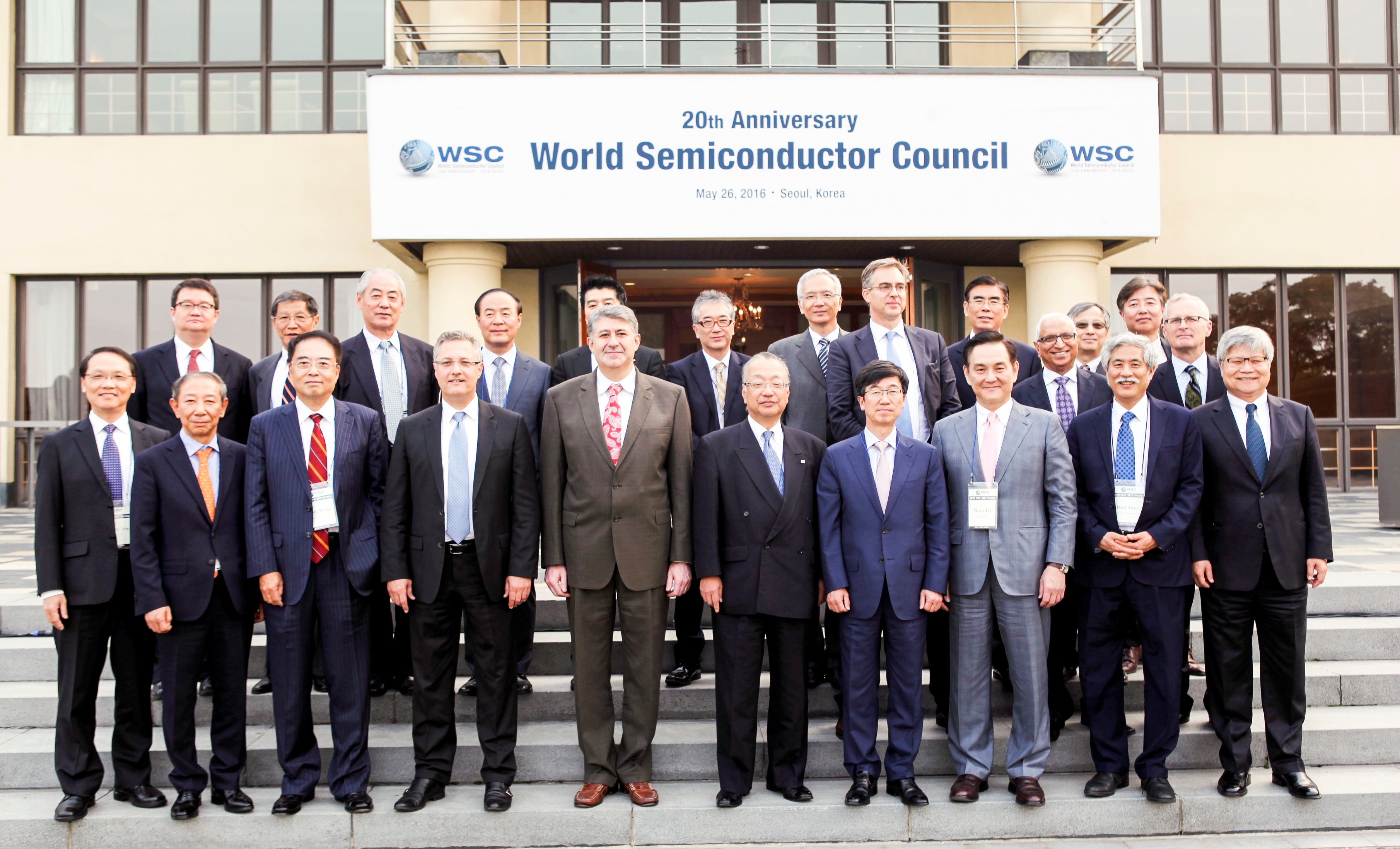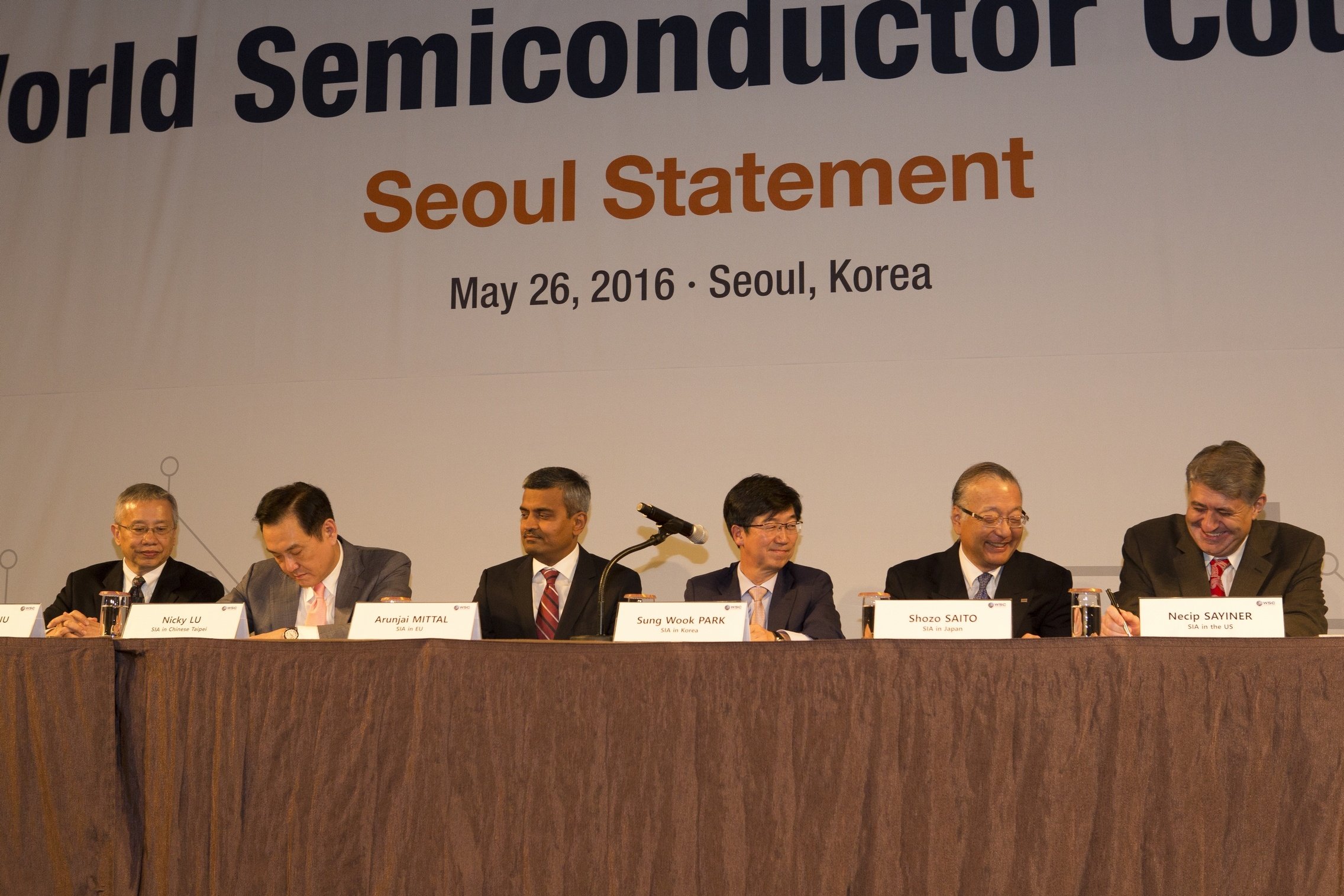The World Semiconductor Council: 20 Years of Promoting Innovation through Free Trade
Thursday, Jun 09, 2016, 3:30pm
by Semiconductor Industry Association
The world’s leading semiconductor industries celebrated the 20th anniversary of the establishment of the World Semiconductor Council (WSC) on May 27 in Seoul, Korea. The WSC grew out of the 1996 U.S.-Japan Agreement on International Cooperation Regarding Semiconductors and today brings together senior executives from six semiconductor-producing regions – China, Chinese Taipei, EU, Japan, Korea, and the U.S. – to promote free and open world trade and to address issues of common concern to chipmakers everywhere.
| Leaders from the six regions at the 20th annual WSC meeting. |
 |
Over the past 20 years, the semiconductor industry has become truly global and interconnected, driven by the scale, complexity, and demands for constant innovation. At the same time, semiconductor technology has advanced at an astounding pace. As highlighted in the WSC press release issued in Seoul, the average functionality of a semiconductor, measured by the average number of transistors per chip, has increased 116,371%. Microprocessor speeds have risen by 10,426%. Energy efficiency has increased 1,383%. Furthermore, the price for semiconductors has dropped at an incredibly rapid pace, from more than $5 per transistor in the 1950s to less than one billionth of a dollar per transistor today.
Free and open international trade has been a primary engine of this remarkable growth and development, and the WSC has played a key role in this regard. One of the primary accomplishments of the WSC in opening markets has been its work to eliminate tariffs on all semiconductors through support of duty suspension and tariff elimination agreements, including the 1996 Information Technology Agreement and the recent deal to expand it.
| WSC leaders sign the 2016 Joint Statement agreement. |
 |
The WSC has also worked to promote the interoperability and security of commercial products containing encryption (which involves nearly all electronic products) by advocating for the adoption of international standards and technology-neutral policies that do not limit market access or discriminate between foreign and domestic products.
Perhaps the biggest accomplishment of the WSC is providing a mechanism for greater communication and collaboration with governments to address industrial policy concerns and avoid trade disputes and market distortions. With increasing government focus on the semiconductor industry around the world, the WSC’s role in fostering dialogue is critical to ensuring industrial policies are transparent, non-discriminatory, and market-based.
The next era of technological progress will require even greater levels of cooperation across a global ecosystem, especially in the face of rising costs of innovation and immense technical challenges. WSC efforts to foster an open and innovative ecosystem for semiconductors will help ensure consumers around the world continue to benefit from faster, cheaper, and more capable semiconductor-enabled devices.